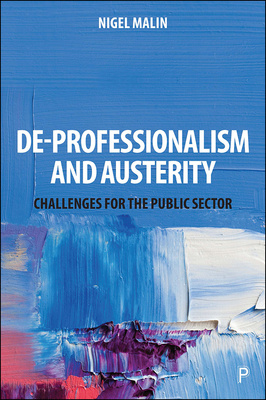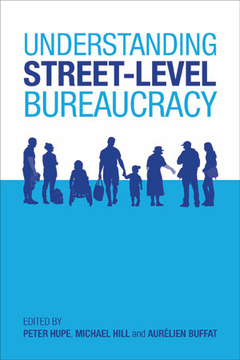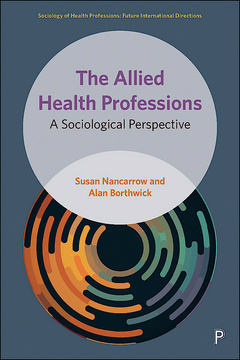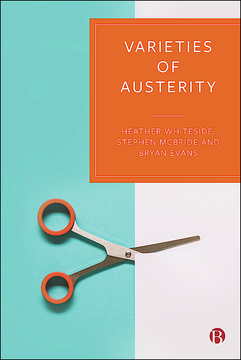Published
Feb 5, 2020Page count
306 pagesISBN
978-1447350187Dimensions
234 x 156 mmImprint
Policy PressPublished
Feb 5, 2020Page count
306 pagesISBN
978-1447350163Dimensions
234 x 156 mmImprint
Policy PressPublished
Feb 5, 2020Page count
306 pagesISBN
978-1447350194Dimensions
Imprint
Policy PressPublished
Feb 5, 2020Page count
306 pagesISBN
978-1447350194Dimensions
Imprint
Policy PressAusterity’s impacts on the healthcare, social care and education professions are under the spotlight in this important book.
From scarcer resources to greater stresses, and falling training budgets to rising risks, it charts how policies and cuts have compromised workers’ ability to undertake their professional roles. It combines research and practice experience to assess the extent of de-professionalisation in recent years and how workers have responded.
This book is a vital review of how austerity has resculpted our notions of professionalism.
Nigel Malin holds degrees from the Universities of Manchester, Oxford, Sheffield and the West of Scotland. Previously he has held full-time teaching and research posts at the Universities of Sunderland, Derby, Sheffield and Sheffield Hallam University, including two Professorships and one Readership. He is author/co-author of ten books, including Professionalism, Boundaries and Workplace (Routledge, 1999), Key Concepts and Debates in Health and Social Policy (Open University Press, 2002), Evaluating Sure Start (Whiting & Birch, 2012) and Community Care For Nurses And the Caring Professions (Open University Press, 1999). Since 2014 he has been Editor of Social Work & Social Sciences Review: An International Journal of Applied Research and since 2015 Associate Editor for the British Journal of Learning Disabilities. He currently lives in Sheffield and is undertaking research on the topic of professionalism and identity.
Part 1: Policy Background and Concepts
Austerity as a UK Policy Context on the Early Twenty-First Century
Neo-Liberalism as an Ideology, an Elite Project and its Impact on Austerity
Public Services, the UK Economy and the Brexit Debate
Part 2: Theoretical Frameworks and Ideology: Professionalism and De-Professionalism
Perspectives used in Studying Professions: Sociology and Social Philosophy
Perspectives used in Studying Professions: Social Policy and Public Administration
De-Professionalism: An Analytical Framework
Part 3: De-Professionalism in the Public Sector: Output Indicators
The Impact of Service Cutbacks, Job Insecurity and Globalisation
De-Professionalism as Defined by Services Deemed ‘Unconventional’, ‘Under-Performing’ or ‘Ineffectual’
Professional Training Programmes: Financial Cuts and Content Critique
Part 4: De-Professionalism in The Public Sector: Subjective or Experiential Indicators
A Demoralisation or Disparagement of the Workforce?
Professional Abuse of Power: Discreditation or a Lowering of Productivity
Conclusion: Professionals as Entrepreneurs in an Age of Austerity
















